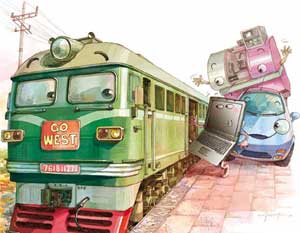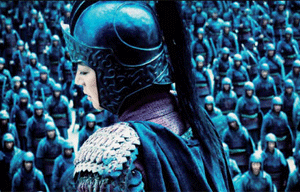Author uses history to detail women's plight
Updated: 2011-09-23 17:20
By Kelly Chung Dawson (China Daily USA Weekly)
|
|||||||||
Women's stories are a continued theme in her work. In Snow Flower, the main characters communicate in a secret language called Nushu. She discovered the practice while reading about foot-binding, and was shocked that so few people knew about it.
"I thought it was so extraordinary, the only writing system in the world exclusively for women," she said. "I couldn't believe that all women didn't know about this. I became obsessed."
In Dreams of Joy, See writes about the experience of women during the Cultural Revolution.
In 1949, Mao passed The Marriage Law, which banned the practice of polygamy, the possession of concubines, and required women to work as men did.
Many view this as having been a practical decision, as double the hands could accomplish double the work. But in terms of women's rights, the move was a huge step forward, See said.
"I think that China was much more advanced in terms of fast change in equal rights for women than other countries," she said. "In 1949, Mao said, ‘Women hold up half the sky,' and whether you wanted to or not, you had to participate in the growth of the nation.
"I think given where China was at that time, the vast numbers of people, and with thousands of years of tradition of how women were treated — the change that occurred for women's rights could only have happened on a national scale being led by the government. Was it completely successful? No, but is it successful here? Women may hold up half the sky, but they hold up a lesser half. That's true here, in England, in Brazil — that's just true everywhere."
See pointed to the media reaction when Deng slapped Murdoch's pie-throwing attacker in court during the News Corp trial in July.
"As soon as that happened, I knew that she would be labeled ‘The Tiger Wife', " See said. "There are pervasive stereotypes about Chinese women — on the one hand, they are long-suffering obedient wives. On the other hand, there is the Dragon Lady Madame Mao ferocious woman stereotype. But ultimately, I don't think that what she did in court had anything to do with her being Chinese.
See, who spent several days with Deng while promoting the movie, described her as a "tough, strong woman."
On the subject of women, See recounted that Li Bingbing had told her that the film adaptation of Snow Flower was being described in China as "the Chinese Brokeback Mountain", she said with a laugh.
The original book had a scene in which the girls had written on each other's naked backs, but See had not intended it to be anything but innocent, she said.
"The writing of Nushu was written in a very heightened, emotional way," she said. "It's easy to interpret this writing from 200 years ago as being between women who were more than friends. You see that heightened tone in letters between women in the American Wild West too."
The movie seems to play these undertones in a more overt way, depicting one of the characters as being fiercely possessive of the other. Wang reassured See that he had only hoped to depict the characters as being truly loving in their friendship.
See has a "Laotong" friendship (as the friendship between the women in Snow Flower is called) of her own with another famous Chinese-American writer, Amy Tan. The two traveled to China together to research books.
"Our relationship is also through writing, so we're like Laotong that way," See said. "I consider her to be one of my closest friends, and it's wonderful to have a friend who is also a writer. We often write about similar subjects, and we are extraordinarily supportive of each other.
See is currently working on a new novel, which will focus on the Chinese nightclub tour circuit in America during the 1930s and 1940s, she said. She continues to write about Chinese history because she feels that it's important that Americans understand China beyond its current status as a global economic superpower, she said.











